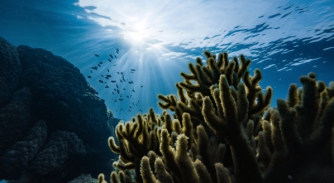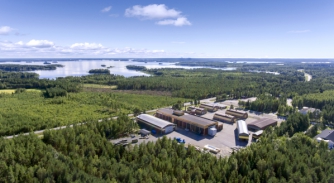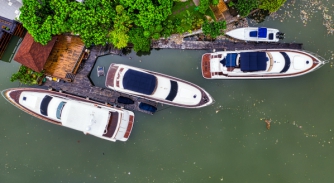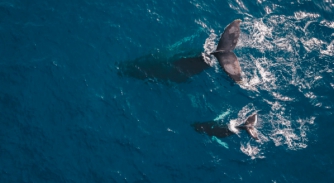Defining sustainability - EU Taxonomy Regulation
A profound conversation with Dr Vienna Eleuteri, initiator & vice chair of Water Revolution Foundation…
EU taxonomy for sustainable activities is a classification system, establishing a list of environmentally sustainable economic activities. The EU taxonomy will provide companies, investors and policymakers with appropriate definitions as to which economic activities can be considered environmentally sustainable, and crucially, drive investment away from companies that fail to meet the standards that are defined. The Taxonomy Regulation was published in the Official Journal of the European Union on 22 June 2020 and entered into force on 12 July 2020.
This sounded great when I first heard of its development. As an industry, we need clarity around the definitions of sustainability. But the superyacht industry should consider a secondary implication: what happens if the rules come into force with clearly defined parameters, and the superyacht industry is still setting individual targets with definitions supported by individual stakeholders with their own agendas and misconceptions? Will the UN be understanding when we try to explain why there is no accountability or continuity across the sector to give substance to our environmentally focused marketing and cocktail chatter?
SuperyachtNews spoke with Dr Vienna Eleuteri, initiator and vice-chair of Water Revolution Foundation (WRF) to discuss the implications for an underprepared industry. Speaking about the regulation, Dr Eleuteri sees a clear issue in the near future: "From the point of view of the maritime industry, and more specifically from the superyacht sector itself, the legislation is a very demanding topic. And, as an industrial cluster, we are not prepared to discuss it properly."
 Dr Vienna Eleuteri
Dr Vienna Eleuteri
"At the very beginning, when I started working within this sector, I always maintained that it is better to set up our agenda instead of being forced", Dr Eleuteri continued. When the stakes are spelt out clearly, the potentially stark implications are harder to ignore. If we don't define our sustainability targets and commitments, it will be done for us, in a way that does not consider the specific consideration of the superyacht industry.
"There is also, of course, the IMO, who are defining regulations based on the UN sustainability goals, the consequence being that any economic activity must meet specific environmental sustainability criteria to be eligible for investment" Dr Eleuteri continues. “You need to be able to demonstrate that you have a positive impact across the six objectives set out to mitigate climate change.”
The Taxonomy Regulation highlights the following six environmental objectives:
- Climate change mitigation
- Climate change adaptation
- The sustainable use and protection of water and marine resources
- The transition to a circular economy
- Pollution prevention and control
- The protection and restoration of biodiversity and ecosystems
To meet this legislation and associated list of definitions, Dr Eleuteri is clear that the sector can rise to the challenge. Still, we have to approach it with the academic rigour that it deserves. "This requires a scientific methodology, taking care about specific parameters such as C02 emissions, water scarcity index and the release of chemicals affecting marine ecosystems, most notably from the production phase."
This will require agility and speed, and this is where Dr Eleuteri sees the industry's potential weakness lying. "You know, as a sector, we are really slow. I say this not just from my work with the Water Revolution Foundation, I say this as a sustainability scientist, having been highly involved in policymaking at different levels". Further clarifying, Dr Eleuteri continues, "A good example is regenerative, carbon-containing synthetic fuels, such as Methanol. These fuels will play a major role in the industry's long-term strategy, but they may not be allowed much further than 2025. If we are too slow, the danger then is that someone else is going to say, 'OK, from this day on, you are unable to use this sustainability solution anymore.'"
“It is imperative to deliver this message to the industry. It will be terrible if we are too slow and unprepared to meet this transition. On the other hand, I am hopeful because we are powerful at crafting solutions when we need to, if based on scientific knowledge” Says Dr Eleuteri.
As Dr Eleuteri highlights, sustainability targets are transitioning away from the subjectivity that has accommodated bad practices for a generation. When it comes time to present our solutions to the UN as a sector, we should be better prepared. "We need then to ensure a lifecycle consideration based on a specific methodology based on realistic criteria – I am not saying that we need to perform miracles – but we need to showcase that the industry is seriously taking responsibility, with a specific agenda, that we can bring to the table to discuss."
Eleuteri does also see hope for the sector to meet the challenge, continuing, "I think that our industry is beautiful with many forward-thinking individuals looking to innovate, and with some brave people following these paths. But, collectively, I think we are very conservative, and in our industry, there is a specific mindset whereby we think we know what the client wants."
“The clients are much more prepared to innovate that we think, my concern is that the regulation will come first, which I am sure will lead to certain stake holders being kicked out of the industry because the were not prepared enough or strong enough to meet the change. We need to find new ways to deliver our products and conduct our business” Says Eleuteri.
As put starkly by Dr Eleuteri, inaction regarding something that may sound as innocuous as 'Taxonomy Legislation' may become an existential threat to stakeholders that do not take it seriously enough. Tools such as the WRF Life Cycle Assessment Tool provide the requisite scientific rigour to have the data on hand. And, as Dr Eleuteri concludes, the industry needs a united front to efficiently set our own path forward: "The strategic position of our industry could now be to open up a different path, not just to comply with something but is transformative. Because if we set up this work table where all of the legitimate stakeholders and interests are on board, we can then define our agenda and actually discuss and negotiate our way forward."
The Water Revolution Foundation will be delivering the opening keynote session on day two of The Superyacht Forum, taking place in Amsterdam 15-17 November. The theme of this year's event centres on defining the building blocks for a more stable, sustainable and robust market by 2030. To be part of this important dialogue, become an Executive Member of The Superyacht Group Community, by clicking here.
Profile links
NEW: Sign up for SuperyachtNewsweek!
Get the latest weekly news, in-depth reports, intelligence, and strategic insights, delivered directly from The Superyacht Group's editors and market analysts.
Stay at the forefront of the superyacht industry with SuperyachtNewsweek
Click here to become part of The Superyacht Group community, and join us in our mission to make this industry accessible to all, and prosperous for the long-term. We are offering access to the superyacht industry’s most comprehensive and longstanding archive of business-critical information, as well as a comprehensive, real-time superyacht fleet database, for just £10 per month, because we are One Industry with One Mission. Sign up here.
Related news

Regulation and insurance in a decarbonised future
IUMI calls for mandatory requirements to facilitate the use of green fuels
Business

Carbon neutral yacht ownership
Dave Mallach, Founder of The Fog Warning, wants to influence the entire industry
Owner

A route to a greener future
Baltic Yachts has seized the sustainability initiative in its implementation of processes and practices that resonate across every element of its operation
Technology

It’s time for environmental issues to break out of the echo chamber
The industry can't afford to be overwhelmingly positive considering the current state of the environment
Business

Water Revolution Foundation launches first endorsed marine conservation project
A superyacht community crowdfunding campaign to protect the oceans
Business
NEW: Sign up for
SuperyachtNewsweek!
Get the latest weekly news, in-depth reports, intelligence, and strategic insights, delivered directly from The Superyacht Group's editors and market analysts.
Stay at the forefront of the superyacht industry with SuperyachtNewsweek




